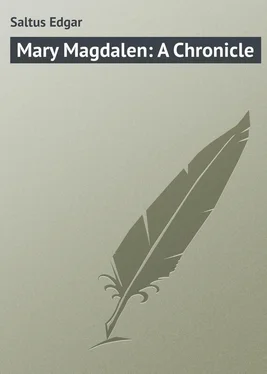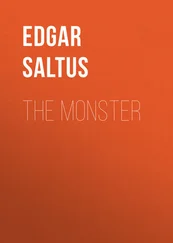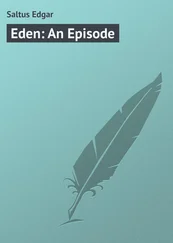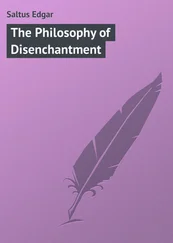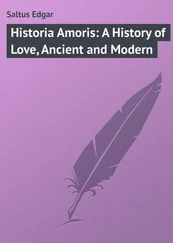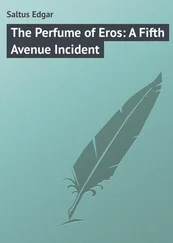Edgar Saltus - Mary Magdalen - A Chronicle
Здесь есть возможность читать онлайн «Edgar Saltus - Mary Magdalen - A Chronicle» — ознакомительный отрывок электронной книги совершенно бесплатно, а после прочтения отрывка купить полную версию. В некоторых случаях можно слушать аудио, скачать через торрент в формате fb2 и присутствует краткое содержание. Жанр: foreign_prose, на английском языке. Описание произведения, (предисловие) а так же отзывы посетителей доступны на портале библиотеки ЛибКат.
- Название:Mary Magdalen: A Chronicle
- Автор:
- Жанр:
- Год:неизвестен
- ISBN:нет данных
- Рейтинг книги:4 / 5. Голосов: 1
-
Избранное:Добавить в избранное
- Отзывы:
-
Ваша оценка:
- 80
- 1
- 2
- 3
- 4
- 5
Mary Magdalen: A Chronicle: краткое содержание, описание и аннотация
Предлагаем к чтению аннотацию, описание, краткое содержание или предисловие (зависит от того, что написал сам автор книги «Mary Magdalen: A Chronicle»). Если вы не нашли необходимую информацию о книге — напишите в комментариях, мы постараемся отыскать её.
Mary Magdalen: A Chronicle — читать онлайн ознакомительный отрывок
Ниже представлен текст книги, разбитый по страницам. Система сохранения места последней прочитанной страницы, позволяет с удобством читать онлайн бесплатно книгу «Mary Magdalen: A Chronicle», без необходимости каждый раз заново искать на чём Вы остановились. Поставьте закладку, и сможете в любой момент перейти на страницу, на которой закончили чтение.
Интервал:
Закладка:
As he cried out at Herodias he seemed as though he would rise and wrench his bonds and mount to where she was. His eyes had lost their pathos; they blazed.
“Woe unto you!” he shouted, “and woe unto your barren bed! Though you hid in the bowels of the earth, in the uttermost depths of a jungle, the stench of your incest would betray you. Woe unto you, I say; the swine will turn from you, the Eternal will rend you, and the heart of hell will vomit you back!”
Herodias shook with anger. She was livid. Murmurs circulated through the increasing throng.
The Pharisees edged nearer. On their foreheads were slips of vellum on which passages of the Law had been inscribed. About their left arms other slips extended spiralwise from the elbow to the end of the third finger. They were in white; where their garments had become soiled, the spots had been chalked.
To them the prophet showed his teeth.“And woe unto you too, race of vipers, bladders of wind! As the fire devours the stubble, and the flame consumes the chaff, so your root will be rottenness and your seed go up as dust. Fear will engulf you like a torrent. The high peaks will be broken, the mountains will sever, and night be upon all. The valleys and hills will be strewn with your corpses, the rocks will run with your blood, the plain will drink it, and the vultures feast on your flesh. Woe unto you all, I say, that call good evil, and evil good!”
The invective continued. It enveloped the world. Everything was to be destroyed. Presently it subsided; the voice of the prophet sank lower; his eyes sought the sky, the pupils dilated; and the dream of his nation, the triumphant future, the sanctification of the faithful, the magnificence that was to be, poured rapturously from his lips.
“The whole land will glow with glory. The sky will be a rose in bloom. The meadows will rejoice, and the earth will be filled with men and maidens singing and kneeling to Thee, Immanuel, whom I await.”
The vision would have expanded, perhaps, but the chain that bound him was loosed, sinewy arms were dragging him away. As he went, he glared up again at Herodias. His face had lost its beatitude.
“You will be stripped of your purple, Jezebel; your diadem will be trodden under foot. The pains of a woman in travail will be as joys unto yours. There will be not enough stones to throw at you, and the abomination of your lust will bellow, Accursed, even beyond the tomb.”
The anathema fainted in the distance. The Scribes consulted between their teeth. By the Pharisees Antipas was blamed. A merchant from Hippos did not understand, and the Law was explained. That a man should marry his brother’s wife was a duty, only in this instance it had not occurred to the brother to die beforehand. Then, again, by her first husband Herodias had a child, and in that was the abomination.
The merchant did not wholly grasp the distinction, but he nodded as though he had.
“There was a child, was there?”
A captain of the garrison answered:“A girl, Salomè.”
He said nothing further, but the merchant could see that his mouth watered at the thought of her.
The crowd had become very dense. Suddenly a trumpet blared. At the gate was Pontius Pilate. On his head was a high and dazzling helmet. His tunic was short, open at the neck. His legs were bare. He was shod with shoes that left the toes exposed. From his cuirass a gorgon’s head had, in deference to local prejudice, been effaced; in its stead were scrolls and thunderbolts. From the belt rows of straps, embroidered and fringed, fell nearly to the knee. He held his head in the air. His features were excellent, and his beard hung in rows of short overlapping curls.
Behind him was his body-guard. Before him Antipas stood, welcoming the Roman in Greek.
In the sky now were the advancing steps of night; in crevices of the basalt the leaves of the baaras weed had begun to flicker. It was time for the festival to begin; and, preceding the guests, Antipas passed into a hall beyond.
It was oblong, curved at the ends, and so vast that the roof was vague. On the walls were slabs of different colors, marble spotted like the skin of serpents, and onyx flecked with violet. On two sides were galleries supported by columns of sandstone. A third gallery formed a semicircle. Opposite, at the further end, on a dais, was the table of the tetrarch.
Antipas faced the assemblage. At his left was the procurator, at his right the emir of Tadmor. Curtains were looped on either side. Above were panels; they separated, and flowers fell. On a little stool next to the couch on which the emir lay was a beautiful boy with curly hair. The couch of the procurator was covered with a dim Babylonian shawl. That of the tetrarch was of ivory incrusted with gold. All three were cushioned.
As the guests entered they were sprinkled with perfume. Throughout the length of the hall other tables extended, and at these they found seats and food: Syrian radishes, melons from the oases near the Oxus, white olives from Bethany, honey from Capharnahum, and the little onions of Ascalon. There were candelabra everywhere, liquids cooled with snow, cheeses big as millstones, chunks of fat in wooden bowls, and behind the tables, slaves with copper platters. On the platters were quarters of red beef, breams swimming in grease, and sunbirds with their plumage on. In the semicircular gallery musicians played, three notes, constantly repeated.
The tetrarch’s table was spread with a cloth of byssus striped with Laconian green. On it were jars of murrha filled with balsam, Sidonian goblets of colored glass, jasper amphoræ, and water-melons from Egypt. Before the procurator was a dish of oysters, lampreys, and boned barbels, mixed well together, flavored with cinnamon and assafœtida; mashed grasshoppers baked in saffron; and a roasted boar, the legs curled inward, the eyes half-closed. The emir ate abundantly of heron’s eggs whipped with wine into an amber foam. When his fingers were soiled, he wiped them in the curls of the beautiful boy who sat near by.
The smell of food filled the hall, mounted to the roof. The atmosphere was that of a bath, and the wines were heady. Already discussions had arisen. A mountaineer and a Galilean skiffsman had been dragged away, the one senseless, the other with features indistinguishable and masked in blood. It was a great festival, and the tetrarch was entertaining, as only he could, his friends, his enemies, and whoever chanced that way.
“As a child he rubbed his body with the leaves of the cnyza, which is a preservative of chastity.” It was a little man with restless eyes and a very long white beard detailing the virtues of Iohanan.“But,” he added, “he must have found cold water better.”
His neighbors laughed. One pounded the table.
“Jeshua – ” he began, but everyone was talking at once.
“Jeshua – ” he continued; yet, as no one would listen, he turned to a passing eunuch and caught him by the arm – “Jeshua does more; he works miracles, and not with the cnyza either.”
The eunuch eluded him and escaped. However, he would not be balked; he stood up and, through the din, he shouted at the little man:
“Baba Barbulah, I tell you he is the Messiah!”
His voice was so loud it dominated the hubbub, and suddenly the hubbub ceased.
From the dais Pontius Pilate listened indifferently. Antipas held his hands behind his ears that he might hear the better. The emir paid no attention at all. On his head was a conical turban; about it were loops of sapphire and coils of pearl. He wore a vest with scant sleeves that reached to the knuckles, and trousers that overhung the instep and fell in wide wrinkles on his feet; both were of leopard-skin. Over the vest was a sleeveless tunic, clasped at the shoulders and girt at the waist. His hair was long, plentifully oiled; his beard was bushy, blue-black, and specked with silver.
Читать дальшеИнтервал:
Закладка:
Похожие книги на «Mary Magdalen: A Chronicle»
Представляем Вашему вниманию похожие книги на «Mary Magdalen: A Chronicle» списком для выбора. Мы отобрали схожую по названию и смыслу литературу в надежде предоставить читателям больше вариантов отыскать новые, интересные, ещё непрочитанные произведения.
Обсуждение, отзывы о книге «Mary Magdalen: A Chronicle» и просто собственные мнения читателей. Оставьте ваши комментарии, напишите, что Вы думаете о произведении, его смысле или главных героях. Укажите что конкретно понравилось, а что нет, и почему Вы так считаете.
